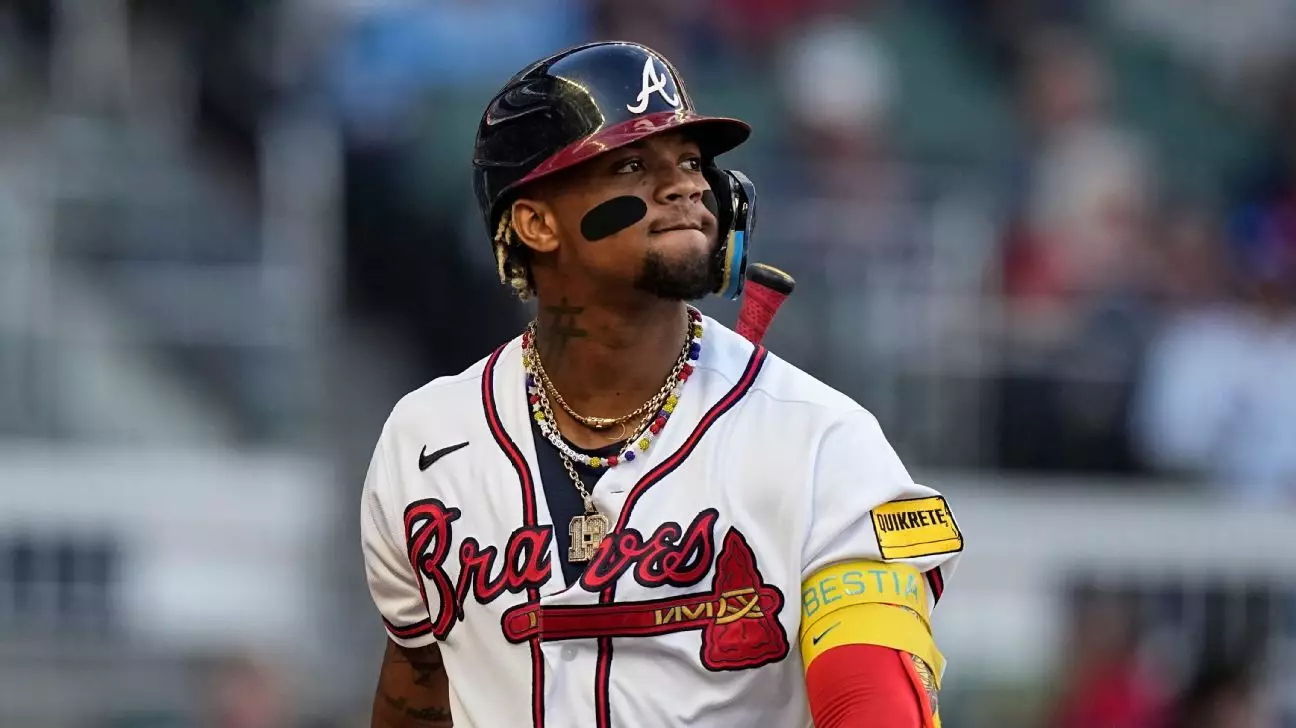The journey back from injury for any professional athlete often feels like an interminable waiting game, particularly when it involves a devastating diagnosis like a torn ACL. Atlanta Braves’ outfielder Ronald Acuña Jr. stands at the precipice of such a journey, wrestling with the frustrations inherent in rehabilitation. Having sustained a significant knee injury on May 26 and undergoing surgery on June 6, Acuña’s path has not been a straightforward one. His situation is emblematic of the broader struggle athletes face: balancing the urgent desire to return to competitive play against the necessity of thorough healing.
Acuña’s forthcoming reevaluation in Los Angeles marks a crucial milestone in this process. For a player of his caliber, the timeline of recovery not only impacts personal aspirations but also holds significant implications for the team. Currently, Acuña’s training regimen consists of live batting practice, a focus that embodies cautious optimism rather than full-fledged participation. Manager Brian Snitker’s comments reflect this careful navigation—emphasizing that there will be no rush back to full activity until medically cleared. The outlook shows discipline, an often-overlooked quality in the quest for athletic excellence.
The Ripple Effect of Absence
The Braves have had to grapple with the harsh reality of playing without Acuña. The team’s struggles are symptomatic of Acuña’s absence, as evidenced by their dismal record early in the season, losing nine of their first eleven games and languishing amongst the league’s lowest in runs scored. This predicament sheds light on Acuña’s value—not merely as a player who fills a position, but as a transformative force that multiplies the strengths of his teammates. His capability to turn the tide of a game with a single swing is what the Braves are missing this season.
Moreover, Acuña’s previous accomplishments serve as a backdrop to the current struggles. Just a year prior, he was basking in the glow of winning the National League MVP award, having notched 41 home runs, 73 stolen bases, and a stellar batting average of .337. Such figures underscore how critical he is to the Braves’ competitive edge. The gap Acuña leaves isn’t just on-field absence; it’s a loss of swagger, energy, and sheer potential.
Cautiously Optimistic Outlook
As the season progresses, Acuña’s rehabilitation will be a focal point not only for Braves fans but for baseball enthusiasts at large. The anticipation of his return brings with it a glimmer of hope for a revitalized Braves lineup. Yet, it’s essential to temper this hope with realism; recovery from an ACL injury is as much a psychological challenge as it is a physical one. Enhanced by Acuña’s discipline in following the rehabilitation protocol, there’s potential for a triumphant return, but it remains crucial to respect the healing process to prevent future setbacks.
Overall, Ronald Acuña Jr.’s resiliency and commitment to rehabbing his injury illustrate the dual nature of sports—an arena of competitive spirit and a canvas for human vulnerability. The reality is, the longer Acuña takes to return, the more crucial it becomes for the Braves to cultivate a sense of urgency as they seek to stabilize their performance in his absence. The unfolding narrative of Acuña and the Braves is one of perseverance and determination, and it’ll be fascinating to see how both evolve over the course of the season.


Leave a Reply